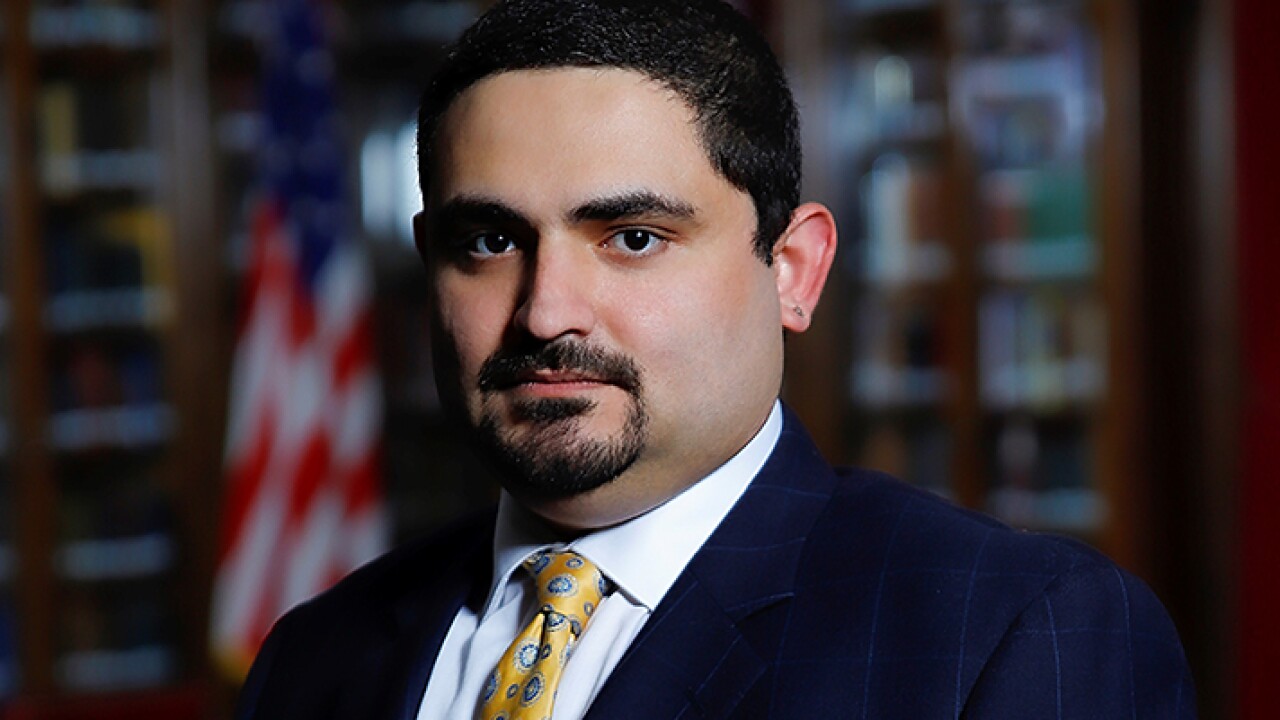Michigan lawmakers are working on supplemental spending bills, trying to claw back hundreds of millions in spending vetoed by Gov. Gretchen Whitmer in the state's fiscal 2020 budget.
The state avoided a government shutdown, enacting a budget by an Oct. 1 deadline, but it came with over 100 line item vetoes by the Democratic governor that affect road and bridge repairs, hospitals, skilled trades education, tourism promotion, and private college scholarships.

The vetoes free up nearly $1 billion in extra money.
Eric Lupher, president of the Citizens Research Council, a not-for-profit public affairs research organization, said he has hopes supplemental spending bills will recover the vetoed funds in a bipartisan way that is acceptable to both the governor and the Republican-controlled legislature.
Some of the vetoed items are easy ones, Lupher said, as they fund items lawmakers had previously agreed on with Whitmer. Spending on the state’s roads remains more controversial.
“The reason for the line item vetoes in the first place was to pull the Republican legislature back to the table and get their attention and negotiate on the controversial things,” Lupher said.
Lupher said that the people of Michigan are the biggest losers in the budget battle.
“Government shouldn’t work this way, but specifically local governments continue to suffer from the state prioritizing its needs generally over their needs," Lupher said. "That is true for municipalities as well as the school districts."
Michigan Republican and Democratic lawmakers have introduced more than 20 supplemental spending proposals to reverse the line-item budget vetoes.
The Republican bills would restore about $264 million in funding for programs Whitmer vetoed, including funding for autism programs, tuition grants, rural hospitals, charter schools and county veterans services.
The Whitmer-backed supplemental introduced by Sen. Curtis Hertel, D-East Lansing, would put an additional $475.7 million into the budget, including $48.5 million in veto rollbacks.
Rural communities in Michigan are slated to get a boost in Hertel’s plan, after getting hit hard by the vetoes and cuts. Rural hospitals are set to get $34.3 million to help with services, while $11 million is earmarked to partially restore the secondary road patrols for rural areas in the state.
House Speaker Lee Chatfield, R-Levering, said the legislature isn’t pressured to come to a consensus on what to do with the vetoed money.
“We felt pressed by time to get the budget done by Sept. 30 — we did,” Chatfield said. “The budget’s over, and we need to talk about policy wins and areas in which we can reach an agreement and move our state forward.”
“Despite large number of vetoes, Gov. Whitmer agreed to 98.4% of what the legislature approved and state spending is going to continue to increase,” said James Hohman, director of fiscal policy at the Mackinac Center.
Whitmer line-item vetoed most of the $400 million in one-time road funding. Whitmer’s road funding plan hinged on a 45-cent-per-gallon hike in the fuel tax to raise $2.5 billion of new money for roads and bridges.
The line item vetoes also included $13.9 million in payments to rural hospitals and $38 million worth of grants to nearly 17,000 low-income students who receive $2,400 annually through the program.
That money had already been included in those students’ financial aid packages, so they’ll have to find a new way to bridge the gap in funding on their own if the budget remains as is.
Moody’s Investors Service said in a report last week that the state’s private colleges are operating in a competitive, low-revenue-growth environment and “would feel additional budgetary strain if they look to increase their own financial aid to make up for the state cuts.”
The rating agency also noted that the latest budget calls for a below-inflation increase in funding for the state’s public universities at a time when they are dealing with declining enrollment rates.
The budget gives state universities and average 0.9% boost in funding, which is less than the 1.75% rate of inflation. Operational funding — over which universities have direct control — is up just 0.5 %, reversing the trend of steady increases in the 2%-3% range over the past seven fiscal years, following a 15% plunge in fiscal 2012.
Moody’s said the spending trend is a credit negative for universities. “With operating revenue growth below inflation, cutting expenses will likely be necessary to sustain fiscal balance, making it difficult for universities to invest in capital and new programs,” Moody’s said in the report. “The strategic position of most Michigan regional public universities will likely weaken as a result.”





